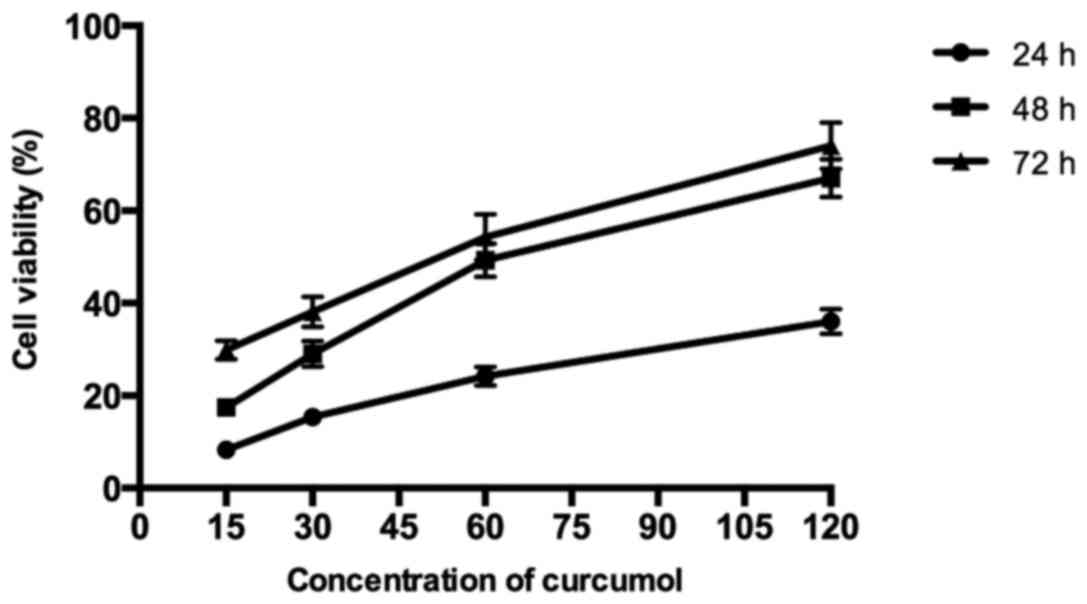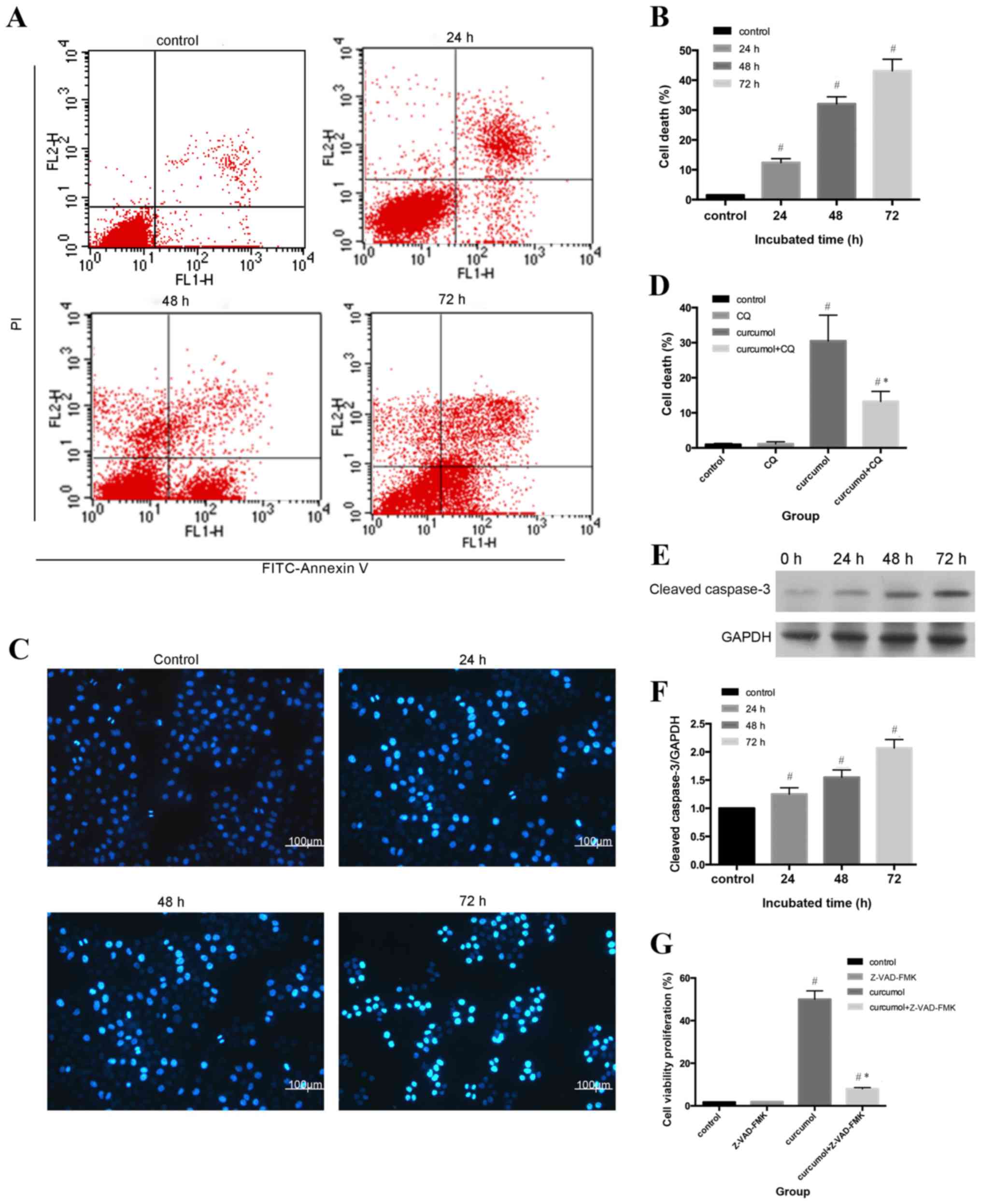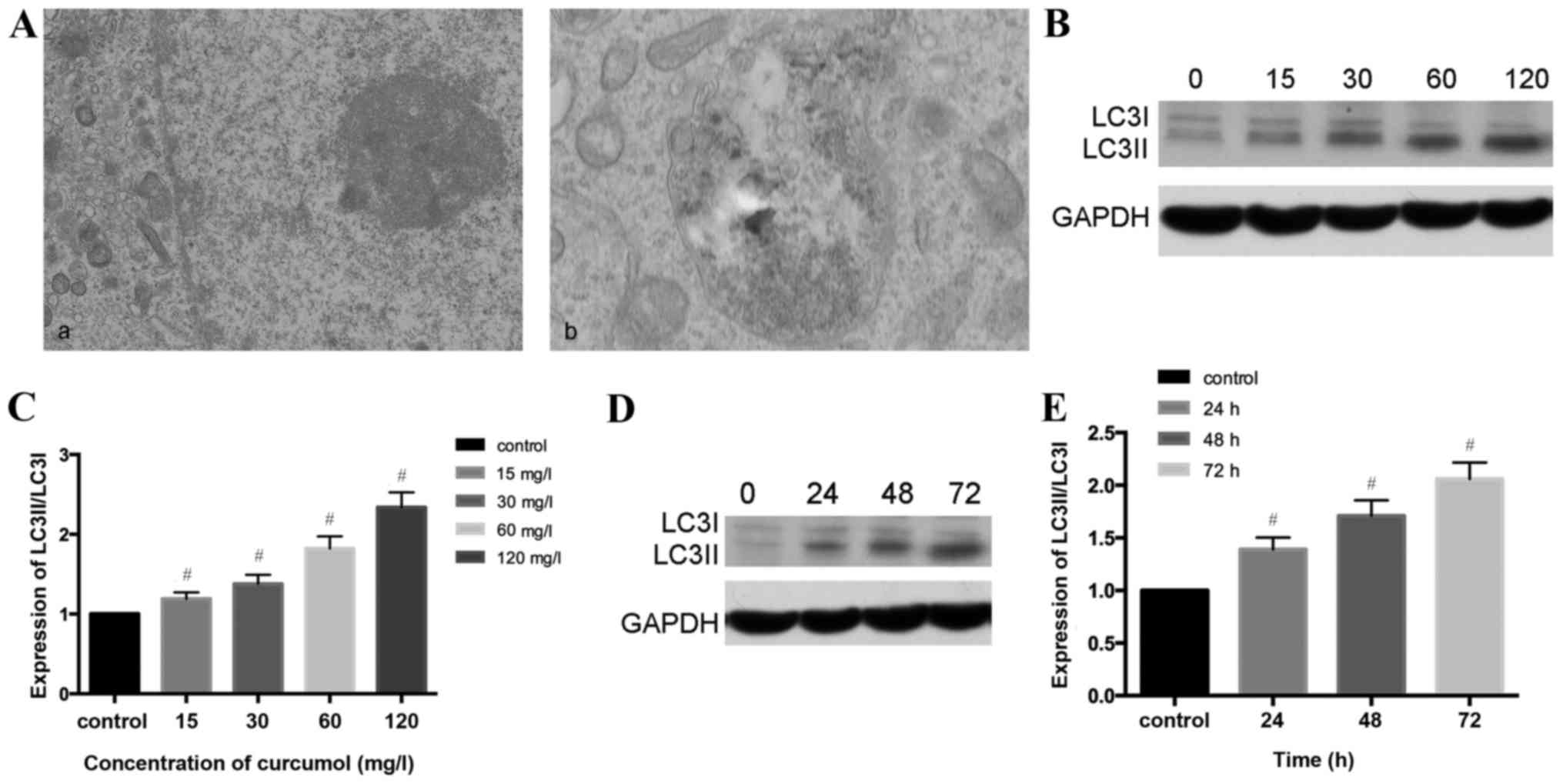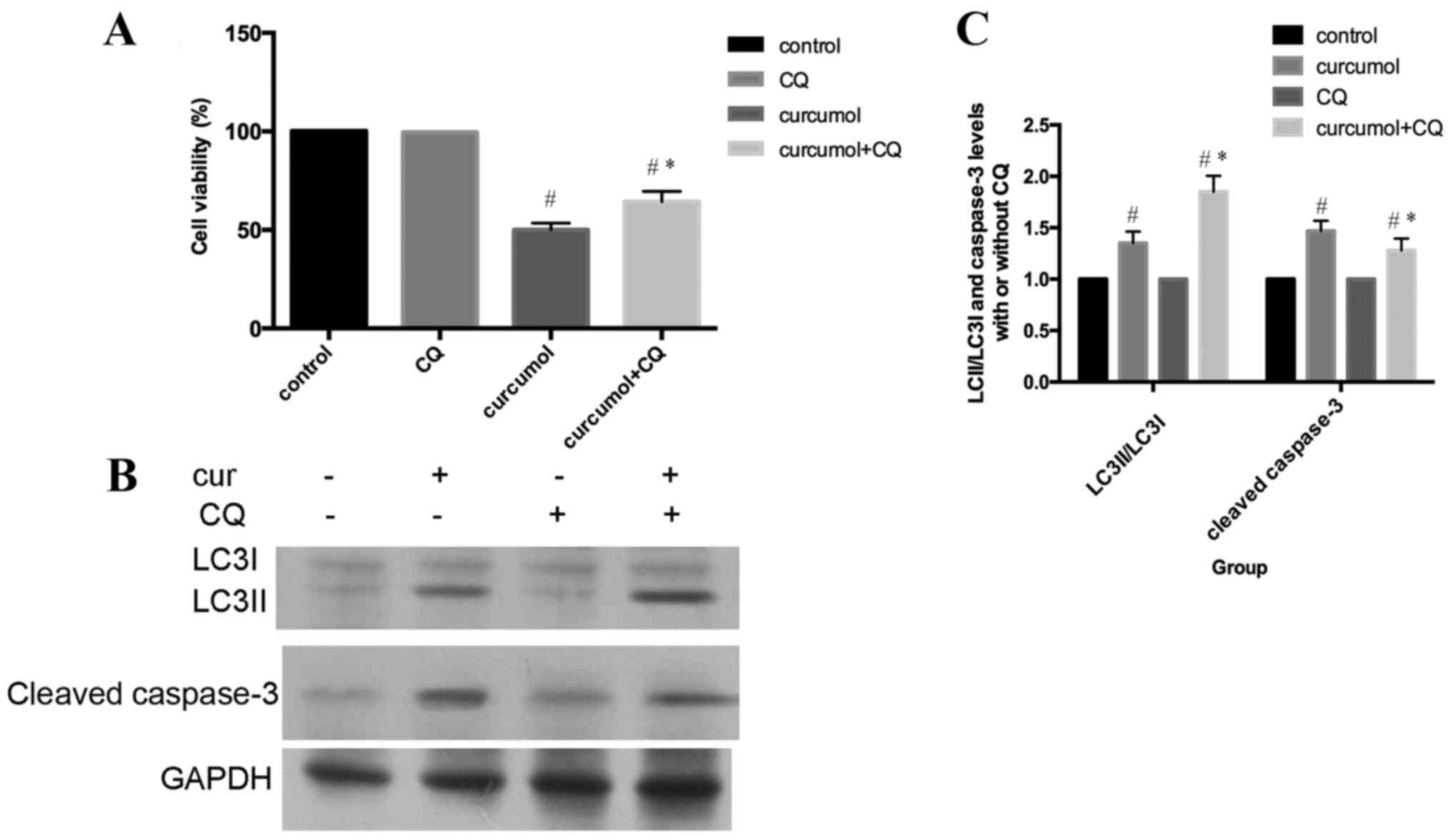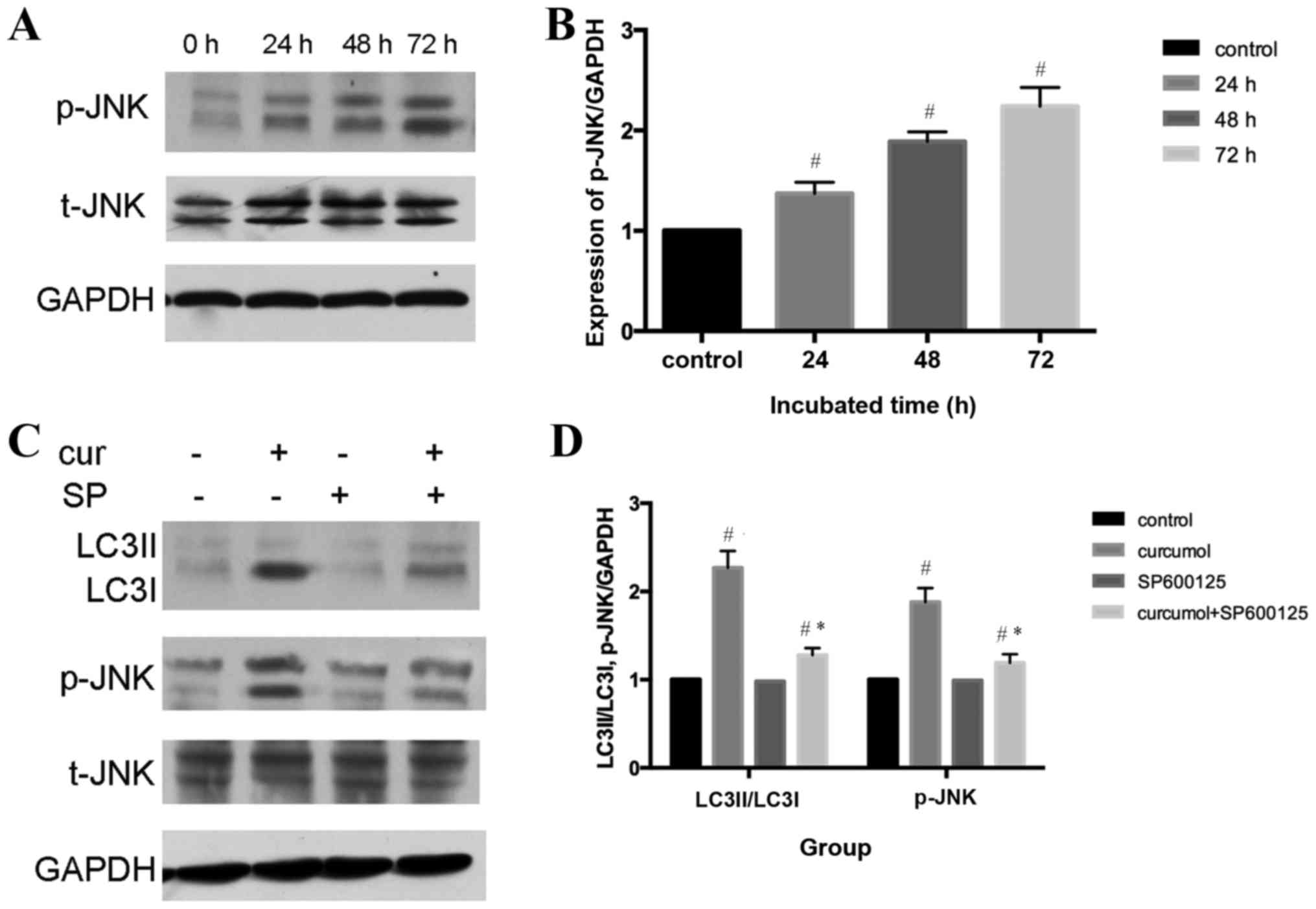|
1
|
Anderer U, Nöhren H, Koch I, Harms D and
Dietel M: Organization of the pediatric tumor cell bank of the
society of pediatric oncology and hematology (GPOH). Klin Padiatr.
210:1–9. 1998.(In German). View Article : Google Scholar : PubMed/NCBI
|
|
2
|
Ferrari S and Palmerini E: Adjuvant and
neoadjuvant combination chemotherapy for osteog enic sarcoma. Curr
Opin Oncol. 19:341–346. 2007. View Article : Google Scholar : PubMed/NCBI
|
|
3
|
Whelan J, Seddon B and Perisoglou M:
Management of osteosarcoma. Curr Treat Options Oncol. 7:444–455.
2006. View Article : Google Scholar : PubMed/NCBI
|
|
4
|
Durfee RA, Mohammed M and Luu HH: Review
of osteosarcoma and current management. Rheumatol Ther. 3:221–243.
2016. View Article : Google Scholar : PubMed/NCBI
|
|
5
|
Chen LX, Zhang H, Zhao Q, Yin SY, Zhang Z,
Li TX and Qiu F: Microbial transformation of curcumol by
Aspergillus niger. Nat Prod Commun. 8:149–152. 2013.PubMed/NCBI
|
|
6
|
Chen X, Zong C, Gao Y, Cai R, Fang L, Lu
J, Liu F and Qi Y: Curcumol exhibits anti-inflammatory properties
by interfering with the JNK mediated AP-1 pathway in
lipopolysaccharide-activated RAW264.7 cells. Eur J Pharmacol.
723:339–345. 2014. View Article : Google Scholar : PubMed/NCBI
|
|
7
|
Li J, Mao C and Li L, Ji D, Yin F, Lang Y,
Lu T, Xiao Y and Li L: Pharmacokinetics and liver distribution
study of unbound curdione and curcumol in rats by microdialysis
coupled with rapid resolution liquid chromatography (RRLC) and
tandem mass spectrometry. J Pharm Biomed Anal. 95:146–150. 2014.
View Article : Google Scholar : PubMed/NCBI
|
|
8
|
Zou L, Liu W and Yu L: Beta-elemene
induces apoptosis of K562 leukemia cells. Zhonghua Zhong Liu Za
Zhi. 23:196–198. 2001.(In Chinese). PubMed/NCBI
|
|
9
|
Zhou HY, Hou JS and Wang Y: Dose-and
time-dependence of elemene in the induction of apoptosis in two
glioma cell lines. Zhonghua Zhong Liu Za Zhi. 28:270–271. 2006.(In
Chinese). PubMed/NCBI
|
|
10
|
Zhang W, Wang Z and Chen T: Curcumol
induces apoptosis via caspases-independent mitochondrial pathway in
human lung adenocarcinoma ASTC-a-1 cells. Med Oncol. 28:307–314.
2011. View Article : Google Scholar : PubMed/NCBI
|
|
11
|
Liu HY, Pen AB, Liao AJ and Shi W:
Preliminary research on the mechanism of apoptosis hepatic stellate
cells induced by zedoary turmeric oil. Zhonghua Gan Zang Bing Za
Zhi. 17:790–791. 2009.(In Chinese). PubMed/NCBI
|
|
12
|
Shi H, Tan B, Ji G, Lu L4, Cao A, Shi S
and Xie J: Zedoary oil (Ezhu You) inhibits proliferation of AGS
cells. Chin Med. 8:132013. View Article : Google Scholar : PubMed/NCBI
|
|
13
|
Wang J, Huang F, Bai Z, Chi B, Wu J and
Chen X: Curcumol inhibits growth and induces apoptosis of
colorectal cancer LoVo cell line via IGF-1R and p38 MAPK Pathway.
Int J Mol Sci. 16:19851–19867. 2015. View Article : Google Scholar : PubMed/NCBI
|
|
14
|
Wang J, Chen X and Zeng JH: Effect of
curcumol on proliferation and apoptosis of nasopharyngeal carcinoma
cellline CNE-2. Xi Bao Yu Fen Zi Mian Yi Xue Za Zhi. 27:790–792.
2011.(In Chinese). PubMed/NCBI
|
|
15
|
Xu LC, Bian KM, Liu ZM and Wang G: The
inhibitory effect of the curcumol on women cancer cells and
synthesis of RNA. Tumor. 25:570–572. 2005.
|
|
16
|
Chen G, Wang Y, Li M, Xu T, Wang X, Hong B
and Niu Y: Curcumol induces HSC-T6 cell death through suppression
of Bcl-2: Involvement of PI3K and NF-κB pathways. Eur J Pharm Sci.
65:21–28. 2014. View Article : Google Scholar : PubMed/NCBI
|
|
17
|
Li X, Wang G, Zhao J, Ding H, Cunningham
C, Chen F, Flynn DC, Reed E and Li QQ: Antiproliferative effect of
beta-elemene in chemoresistant ovarian carcinoma cells is mediated
through arrest of the cell cycle at the G2-M phase. Cell Mol Life
Sci. 62:894–904. 2005. View Article : Google Scholar : PubMed/NCBI
|
|
18
|
Zhao J, Li QQ, Zou B, Wang G, Li X, Kim
JE, Cuff CF, Huang L, Reed E and Gardner K: In vitro combination
characterization of the new anticancer plant drug β-elemene with
taxanes against human lung carcinoma. Int J Oncol. 31:241–252.
2007.PubMed/NCBI
|
|
19
|
Lin Y, Wang K, Hu C, Lin L, Qin S and Cai
X: Elemene injection induced autophagy protects human hepatoma
cancer cells from starvation and undergoing apoptosis. Evid Based
Complement Alternat Med. 2014:6375282014. View Article : Google Scholar : PubMed/NCBI
|
|
20
|
Liu J, Hu XJ, Jin B, Qu XJ, Hou KZ and Liu
YP: β-Elemene induces apoptosis as well as protective autophagy in
human non-small-cell lung cancer A549 cells. J Pharm Pharmacol.
64:146–153. 2012. View Article : Google Scholar : PubMed/NCBI
|
|
21
|
Liu J, Zhang Y, Qu J, Xu L, Hou K, Zhang
J, Qu X and Liu Y: β-Elemene-induced autophagy protects human
gastric cancer cells from undergoing apoptosis. BMC Cancer.
11:1832011. View Article : Google Scholar : PubMed/NCBI
|
|
22
|
Zhou K, Wang L, Cheng R, Liu X, Mao S and
Yan Y: Elemene increases autophagic apoptosis and drug sensitivity
in human cisplatin (DDP)-resistant lung cancer cell line
SPC-A-1/DDP By inducing beclin-1 expression. Oncol Res. May
23–2017.(Epub ahead of print). View Article : Google Scholar
|
|
23
|
Mu L, Wang T, Chen Y, Tang X, Yuan Y and
Zhao Y: β-Elemene enhances the efficacy of gefitinib on
glioblastoma multiforme cells through the inhibition of the EGFR
signaling pathway. Int J Oncol. 49:1427–1436. 2016.PubMed/NCBI
|
|
24
|
Raff MC, Barres BA, Burne JF, Coles HS,
Ishizaki Y and Jacobson MD: Programmed cell death and the control
of cell survival. Philos Trans R Soc Lond B Biol Sci. 345:265–268.
1994. View Article : Google Scholar : PubMed/NCBI
|
|
25
|
Bursch W, Ellinger A, Gerner C, Fröhwein U
and Schulte-Hermann R: Programmed cell death (PCD) Apoptosis,
autophagic PCD, or others? Ann N Y Acad Sci. 926:1–12. 2000.
View Article : Google Scholar : PubMed/NCBI
|
|
26
|
Lockshin RA and Zakeri Z: Apoptosis,
autophagy, and more. Int J Biochem Cell Biol. 236:2405–2419. 2004.
View Article : Google Scholar
|
|
27
|
Ogier-Denis E and Codogno P: Autophagy: A
barrier or an adaptive response to cancer. Biochim Biophys Acta.
1603:113–128. 2003.PubMed/NCBI
|
|
28
|
Nicholson DW: Caspase structure,
proteolytic substrates, and function during apoptotic cell death.
Cell Death Differ. 6:1028–1042. 1999. View Article : Google Scholar : PubMed/NCBI
|
|
29
|
Thornberry NA: Caspases: Key mediators of
apoptosis. Chem Biol. 5:R97–R103. 1998. View Article : Google Scholar : PubMed/NCBI
|
|
30
|
Xiong S, Mu T, Wang G and Jiang X:
Mitochondria-mediated apoptosis in mammals. Protein Cell.
5:737–749. 2014. View Article : Google Scholar : PubMed/NCBI
|
|
31
|
Poole B and Ohkuma S: Effect of weak bases
on the intralysosomal pH in mouse peritoneal macrophages. J Cell
Biol. 90:665–669. 1981. View Article : Google Scholar : PubMed/NCBI
|
|
32
|
Nilsson JR: Does chloroquine, an
antimalarial drug, affect autophagy in Tetrahymena pyriformis? J
Protozool. 39:9–16. 1992. View Article : Google Scholar : PubMed/NCBI
|
|
33
|
Zhou YY, Li Y, Jiang WQ and Zhou LF:
MAPK/JNK signaling: A potential autophagy regulation pathway.
Biosci Rep. 35:pii: e001992015.
|
|
34
|
Byun JY, Yoon CH, An S, Park IC, Kang CM,
Kim MJ and Lee SJ: The Rac1/MKK7/JNK pathway signals upregulation
of Atg5 and subsequent autophagic cell death in response to
oncogenic Ras. Carcinogenesis. 30:1880–1888. 2009. View Article : Google Scholar : PubMed/NCBI
|
|
35
|
Morgan-Bathke M, Lin HH, Ann DK and
Limesand KH: The role of autophagy in salivary gland homeostasis
and stress responses. J Dent Res. 94:1035–1040. 2015. View Article : Google Scholar : PubMed/NCBI
|
|
36
|
Apel A, Zentgraf H, Büchler MW and Herr I:
Autophagy-A double-edged sword in oncology. Int J Cancer.
125:991–995. 2009. View Article : Google Scholar : PubMed/NCBI
|
|
37
|
Rami A and Kögel D: Apoptosis meets
autophagy-like cell death in the ischemic penumbra: Two sides of
the same coin? Autophagy. 4:422–426. 2008. View Article : Google Scholar : PubMed/NCBI
|
|
38
|
Su Z, Yang Z, Xu Y, Chen Y and Yu Q:
Apoptosis, autophagy, necroptosis, and cancer metastasis. Mol
Cancer. 14:482015. View Article : Google Scholar : PubMed/NCBI
|
|
39
|
Barr RK and Bogoyevitch MA: The c-Jun
N-terminal protein kinase family of mitogen-activated protein
kinases (JNK MAPKs). Int J Biochem Cell Biol. 33:1047–1063. 2001.
View Article : Google Scholar : PubMed/NCBI
|
|
40
|
Wei Y, Pattingre S, Sinha S, Bassik M and
Levine B: JNK1-mediated phosphorylation of Bcl-2 regulates
starvation-induced autophagy. Mol Cell. 30:678–688. 2008.
View Article : Google Scholar : PubMed/NCBI
|
|
41
|
Sui X, Kong N, Ye L, Han W, Zhou J, Zhang
Q, He C and Pan H: p38 and JNK MAPK pathways control the balance of
apoptosis and autophagy in response to chemotherapeutic agents.
Cancer Lett. 344:174–179. 2014. View Article : Google Scholar : PubMed/NCBI
|















